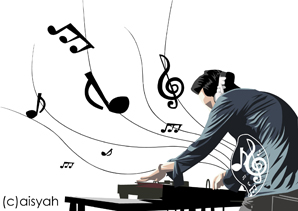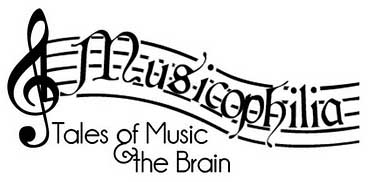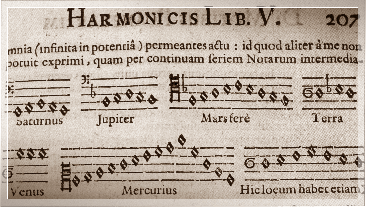LETTERS FROM THE GLOBAL PROVINCE
Everyman's A Disc Jockey, Global Province Letter, 9 November 2011
Without music life would be a mistake----Friedrich Nietzsche
When you walk through a storm
Keep your chin up high
And don't be afraid of the dark.
At the end of the storm
Is a golden sky
And the sweet silver song of a lark----Oscar Hammerstein's Carousel
Disc Jockey. We used to think of disc jockeys as mildly witty guys, or mostly guys, who spun music over the radio to battle the tedium that weighed on listeners the world over. Of course, the term's come to refer to anybody who puts platters on the phono at a barn-like club or a tee shirt dance party, just for the ears of those in the room. But with the Internet, every man is a disc jockey in the making, shooting out melodies collected from YouTube or iTunes to close friends or to hundreds of invisible acquaintances on Facebook. The world has become everybody's oyster.
We used to think of disc jockeys as mildly witty guys, or mostly guys, who spun music over the radio to battle the tedium that weighed on listeners the world over. Of course, the term's come to refer to anybody who puts platters on the phono at a barn-like club or a tee shirt dance party, just for the ears of those in the room. But with the Internet, every man is a disc jockey in the making, shooting out melodies collected from YouTube or iTunes to close friends or to hundreds of invisible acquaintances on Facebook. The world has become everybody's oyster.
For many, music is the language of international friendship. Virtual citizens who meet by computer don't speak each other's language, but music for them knows no barriers. For breakfast, somebody in Oxford, Mississippi can pipe out notes to acquaintances in afternoon Bordeaux, and to entrepreneurs in nighttime Ulan Bator, or to wayfarers at an inn in Kyoto. Now just about anybody at a keyboard is a Wolfman Jack in the making.
Musicophilia.  Oliver Sacks, a stupendous neurologist, thinker, and writer, likes to ruminate about the interconnections that run through everything we do and think about. So too, he has weighed in on the power of the cascade of music we surround ourselves with, figuring out how it shakes our timbers and cuts to our core:
Oliver Sacks, a stupendous neurologist, thinker, and writer, likes to ruminate about the interconnections that run through everything we do and think about. So too, he has weighed in on the power of the cascade of music we surround ourselves with, figuring out how it shakes our timbers and cuts to our core:
"In his latest book, "Musicophilia," Dr. Sacks focuses on people afflicted with strange musical disorders or powers — "musical misalignments" that affect their professional and daily lives. A composer of atonal music starts having musical hallucinations that are "tonal" and "corny": irritating Christmas songs and lullabies that play endlessly in his head. A musical savant with a "phonographic" memory learns the melodies to hundreds of operas, as well as what every instrument plays and what every voice sings. A composer with synesthesia sees specific colors when he hears music in different musical keys: G minor, for instance, is not just "yellow" but "ocher"; D minor is "like flint, graphite"; and F minor is "earthy, ashy." A virtuoso pianist, who for many years bizarrely lost the use of his right hand, finds at the age of 36 that the fourth and fifth fingers of his right hand have started to curl uncontrollably under his palm when he plays.
And he writes about the power of rhythm to help coordinate and energize basic locomotive movement, a power that explains why music can help push athletes to new levels and why the right sort of music (generally, legato with a well-defined rhythm) can help liberate some parkinsonian patients from "their frozenness."
Indeed, this volume makes a powerful case for the benefits of music therapy. In Dr. Sacks' view, music can aid aphasics and patients with parkinsonism, and it can help orient and anchor patients with advanced dementia because "musical perception, musical sensibility, musical emotion and musical memory can survive long after other forms of memory have disappeared."
Musicophilia: Tales of Music and the Brain, whose title speaks of the love of music, implies that music can be quite therapeutic for somewhat dysfunctional people. But if Sacks were to become a sociologist, we are equally certain he would speak of how it can bring both purpose and harmony to society.
The Harmony of Peoples. We think, indeed, that two strains of very American music—bluegrass and old-time music along with mid-20th century jazz— have had a unifying effect on society, each endowed with a style and mores that soothed both performers and audiences, many of whom were locked in spartan circumstance and copious troubles. Not all music is therapeutic or unifying, but these do have that power.
Both grew out of the South, with both bluegrass and jazz coming to the fore in the early 20th century. Old-time music, from the mountains, dates back to the very founding of the Republic. It is these very local roots, we think, that gives jazz and bluegrass and old-time their benign power. In their beginnings they were aligned with the land and small groups of people toughing it out. It would seem that we can much by drawing on other deep and local American traditions.
Bluegrass from Kentucky and Round Peak Style. Bill Monroe of Kentucky is called the Father of Bluegrass, and we are just now celebrating the 100th anniversary of his birth. He was quite a character and there are all sorts of stories about him. Introduced once to Frank Sinatra, he supposedly said, "Now just what is it that you do?" We like it that Monroe so nicely remembered in song his Uncle Pen who is taken to be his mentor.
However, it is a cousin of Bluegrass, the Round Peak, centered even today in Surry County in North Carolina, that commands our attention since it seems so focused on family and community. It is old-time music, played mostly with string instruments, the banjo free of the resonator used in Bluegrass, with much less emphasis on solo virtuosity. Benton Flippen, who died just this year, was long one of its stalwarts. Everybody should share Benton's Dream.
Bluegrass and Round Peak seem wonderfully simple and quaintly innocent to us. They just bring people together.
Jazz and Cool Jazz. Jazz works its magic for different reasons. It's a mongrel of West Africa strains, European ideas, and American popular songs. Its styles and sounds range all over the lot. Most of the time it comes across as a language from another planet that puts the listener at some distance from the realities of the here and now.
What's most instructive for the present day is Cool Jazz, a melodic easy-to-take, rarified jazz that pulsed through America after World War II. As Wikipedia claims, "Broadly, "cool" refers to a number of post-war jazz styles employing a more subdued approach than that found in other contemporaneous jazz idioms." It brought harmony, even epsom-salts type pain relief, to hectic, hard-working Americans. Perhaps today, Dr Sacks might agree, it could mitigate the clinical depression that has become epidemic in our nation.
Its practitioners radiate talent. Oscar Peterson on a Night Train. Dave Brubeck telling us to Take Five. Mr. Chet Baker, Mr. Cool Himself, invoking My Funny Valentine.
Stan Getz and Charlie Byrd painting the room with a Samba Triste. Mose Allison getting us all to slow down with his Do Nothin' Til You Hear from Me. There are countless others such as Mel Torme and Ella Fitzgerald.
Cool Jazz endures in the present age. We would count the Canadian singer and pianist Diana Krall in its ranks, as she intones I've Got You Under My Skin. More importantly, the indomitable and highly civilized Miriam McPartland, a lady for all seasons, plays on, and indeed she is right to say that I Could Write A Book. Once a week, on Sunday in our part of the country, she brings cool jazz to National Public Radio with a special talent for making each of her guests shine, so that we fathom both their personalities and their talents.
With the loud baying of wolves all through our society, it is a relief to have practitioners of cool amongst us. They walk softly, but as Teddy Roosevelt was wont to say, they carry a big stick.
Wailing Banshees. Radio as we knew it is long gone. Shrill voices dominate the airwaves of radio and cable TV. We hear casually caustic, mindless voices with little to say who say it very loudly. Amongst this clatter, we not only pray for music that will help troubled minds but for sounds that will draw us together as a people. For that, maybe the historical America of Cool Jazz and Round Peak gatherings has something to offer. Not any music will do, since we need strains that bring us into concordance. Once again, we seek Musica Universalis, a state of being hearkening back to the Harmony of Spheres espoused by Pythagoras where the heavens, the musicians, and the human spirit are in alignment.
Meanwhile we must look about for the sorts of things that overcome the much noted polarities that have rived our several marketplaces. Music is just one of those things. We must cast out the tyranny of words that has silted up the byways of our brains, threatening to turn us into a society of loudmouths.
P.S. The disc jockey really belongs to the age of radio. According to Wikipedia, Reginald Aubrey Fessenden, a self made scientist who eventually worked for Edison,
first sent music out over the air waves. Ray Newby, under the tutelage of radio pioneer Doc Herold, became the first real radio disc jockey in 1909 at the age of 16.
P.P.S. Not widely known in the United States, Charlie Gillet was surely the world's disc jockey, enjoying the most diverse and geographically farflung audience on the BBC. In addition, he was a music historian and talent scout. He authored The Sound of the City: The Rise of Rock and Roll (1970), a definitive book on rock which has sold 250,000 copies and is still in print. And he is credited with putting both Elvis Costello and Dire Straights on the road to success.
P.P.P.S. Yes, we are implying that they speak a special regional language in Oxford, Mississippi.
P.P.P.P.S. Years ago one of our readers asked us for more commentary on music. Of course, it is impossible to write about, because, fortunately, it is beyond words. Obviously, that does not keep us from trying.
Home - About This Site - Contact Us
Copyright 2011 GlobalProvince.com